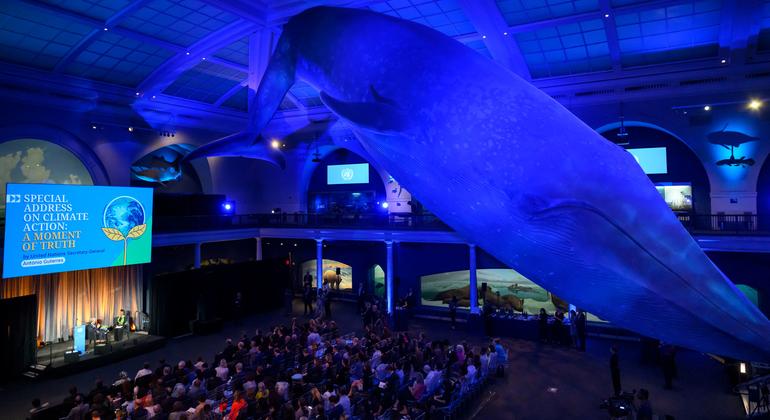Three Planet Crisis: Global Forecast Report Reveals Global Changes


“The rapid pace of change, uncertainty and technological developments we are witnessing, against a backdrop of geopolitical uncertainty, means that Any country can be pushed off course more easily and more often.,” speak UNEP CEO Inger Andersen.
Changes include human-caused degradation of the natural world, rapid development of technologies such as AI, competition for natural resources, rising inequality, and declining trust in institutions.
Together, they are creating what is known as a multi-crisis, in which global crises are amplifying and synchronizing – with enormous impacts on human and planetary well-being.
Signal change
In addition to the eight changes, the report identifies 18 signals of change. These signals – identified by hundreds of global experts through regional consultations and with stakeholders including young people – provide further insight into the potential disruptions, both positive and negative, that the world must prepare for.
Among them are the growing demand for rare earth elements, critical minerals and metals, and the growing need for deep-sea mining and, further afield, space mining.
This poses a threat to nature and biodiversity, can increase pollution and waste, and cause more conflict.
The thawing of permafrost due to climate warming also has major impacts on the environment, animals and humans, by releasing ancient organisms that can cause disease. It has led to outbreaks of anthrax, a serious infectious disease caused by bacteria, in Russia’s vast Siberian region.
The report also identifies the rise in armed conflict and violence, along with the human health and environmental impacts of forced displacement, as important signals of change that need to be anticipated.
The importance of foresight
Despite these emerging crises, the report also finds that adopting better forecasting tools will be the best way to help the world anticipate future disruptions.
“Foresight provides a useful toolkit to break free from short-termism to help identify future opportunities and risks. “Provided it is done in a truly pluralistic way,” said ISC President Peter Gluckman.
To ensure this pluralistic approach, the report recommends adopting a new social contract that engages diverse stakeholders, including Indigenous peoples, giving young people a stronger voice, and rethinking progressive measures to move beyond GDP.
“As the impact of multiple crises grows, Now is the time to get ahead and protect yourself from emerging challenges.“UNEP Executive Director Inger Andersen said.
“By monitoring the signals of change and using a forward-looking approach, the world can Avoid repeating past mistakes and focus on solutions that can withstand future disruptions“, she added.




